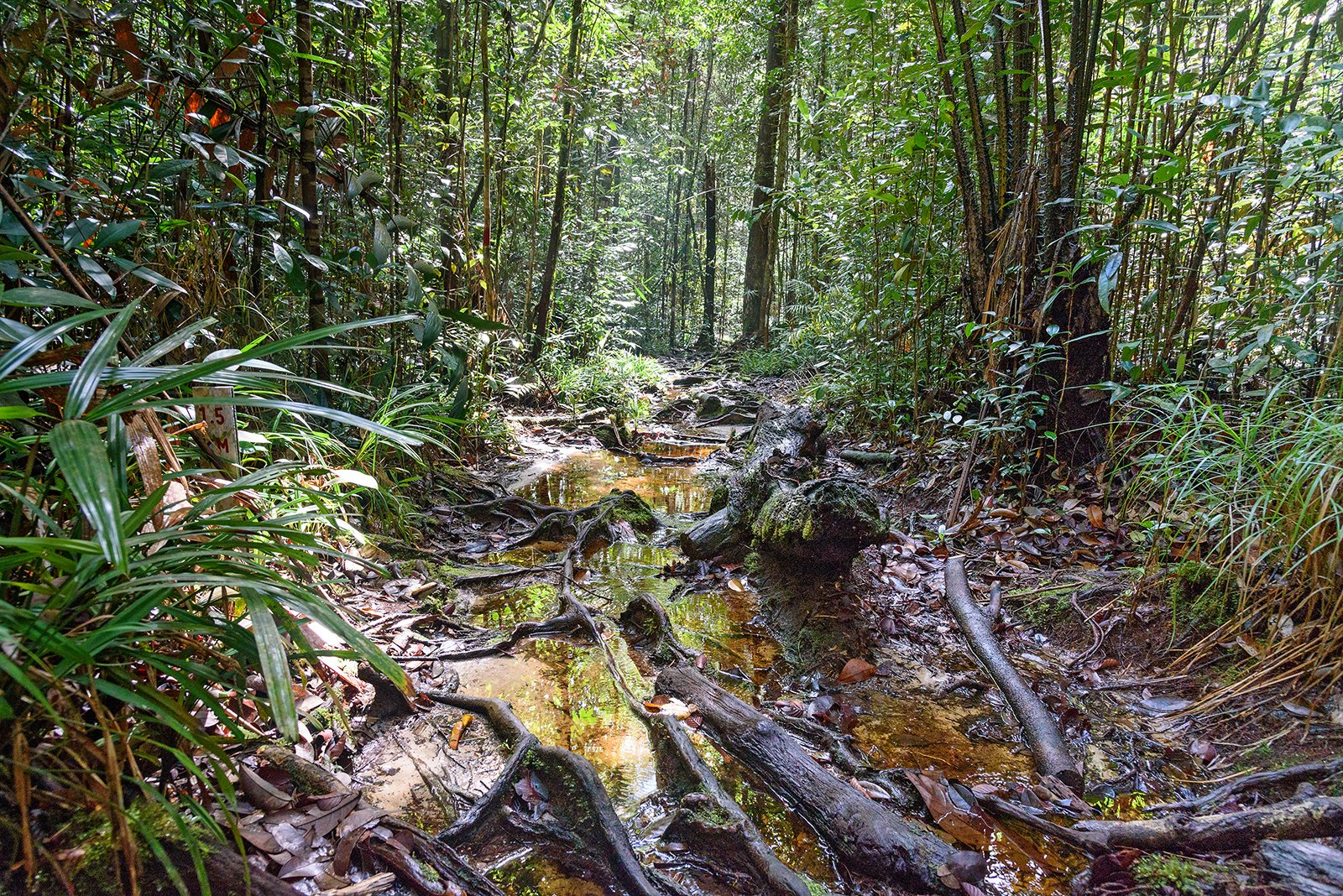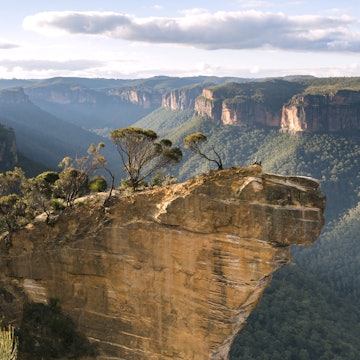

The all-enveloping equatorial rainforests of Borneo's fine national parks are great for day hikes, but nothing beats an overnight trek to really experience these incredible jungles. A world full of orangutans, carnivorous pitcher plants, gargantuan Rafflesia flowers deserves in-depth exploration. But the land is diverse and conditions change throughout every trek, so having the right gear (there are some pretty unique needs out here) can mean the difference between a thrilling voyage of discovery and sodden misery.

Dressing for the climate
Borneo – made up of the Malaysian states of Sarawak and Sabah, the sultanate of Brunei and Indonesian Kalimantan – has wetter seasons and dryer seasons. Exactly when depends on where you are, but downpours of biblical intensity are possible any time of the year. And even when you're not slogging through a deluge, the heat and nearly 100% humidity will ensure that you'll stay soaked with your own sweat. The best way to minimize discomfort is to bring kit made from materials that do not retain water. That means cotton is out, while synthetics – such as nylon, polyester, Lycra and (for higher elevations) Polar fleece – are in. All your gear, from socks to photographic equipment, should be packed in waterproof bags.
Bring two sets of clothing – one for hiking and the other to wear at the end of the day and at night. Your trekking duds will be soaked within minutes and will stay that way until you get back to civilisation. Keep your day and night kit strictly separate or you'll find that you have two sets of wet clothing. Talcum powder can help alleviate chafing caused by wet underwear.

Coping with creepy-crawlies
Mosquitoes are not a huge problem in most parts of Borneo, thanks in part to the millions of insect-eating bats that inhabit the island's countless caves, but you are likely to find yourself in a battle of wits with two varieties of leech. First is the ground-dwelling brown leech, notorious for its painless bites (you won't know you've been tapped until you see blood soaking through your socks). The other is the tiger leech, which drops onto passing humans from overhead branches, inflicting a bite that stings like some ant bites.
You'll hear lots of theories about the best way to keep the slimy blood-suckers at bay but one widely accepted method is to put an impenetrable fabric barrier between their jaws and your capillaries. Knee-length 'leech socks', made of tightly knit calico, do the trick. You can find leech socks on Amazon but you should really just buy them in Borneo – they're made here and can be found for much cheaper. Some also use Spandex and some even use panty hose. Either way, a barrier is key. Beyond that, if you find that a leech has attached itself, salt is your primary weapon – touch the leech with a thin-fabric bag filled with a spoonful of salt and it will recoil pronto. Show good form when dealing with a leech - my Borneo trekking guide, Al Davies, advises that if other people are around when you’ve removed the leach, you should permanently neutralise it by chopping it in half with a parang (Bornean machete).

Sleeping safely and dryly
To keep yourself safely isolated from ground-dwelling insects, reptiles and small mammals while you sleep, hang a lightweight hammock between two trees. There are two great hammock companies to check out if you'd like to pack your own – Hennessy Hammocks (hennessyhammock.com) and DD Hammocks (ddhammocks.com). To protect yourself against flying insects, wrap the hammock with a mosquito net soaked in permethrin. Then, to stay dry, hang a wide basha (tarpaulin) over the entire ensemble. Finally, climb into a lightweight sleeping bag with a comfortable liner to make this whole setup cosy.
Overnight, the rain-protected space under your basha bivouac can also used to dry out your footwear, socks and trekking clothes.
Rainforest first aid
Even a seemingly innocuous scratch can quickly get infected in the heat and humidity so bringing along proper first aid is essential. Apply an antiseptic such as povidone-iodine to cuts and scrapes. To reduce itching from insect stings and bites (and thus the urge to scratch, which can invite infection), use calamine lotion, sting relief spray or aloe vera. Purify local water using a filter or tablets.
Foot care is essential so after you take off your boots and peel off your soaking socks, completely dry your feet and then apply anti-fungal cream or powder as needed. Ask your doctor about bringing along a just-in-case supply of broad-spectrum antibiotics - and the conditions under which they should be used.

List of essentials
For a healthy, safe and enjoyable trek in the Bornean rainforest, here's a checklist of the essential kit you'll need:
Basha - waterproof tarpaulin for keeping the rain off your hammock.
GPS tracker - in the rain forest, figuring out where you are can be tricky. All day long, no matter where you are, all you can see is trees.
Hammock - string it between two trees to keep you and your sleeping bag comfortably above the slime, snakes and centipedes.
Hat - a wide brim will keep the rain off your face (and, if you wear them, your glasses); an absorbent band will prevent sweat from dripping into your eyes.
Hiking shoes - for well-used trails, running shoes with good traction should be fine, but for trekking in remote areas you'll need serious hiking boots with mud-gripping cleats; make sure they're well broken-in before you set out.
Leech socks - these serve as an impenetrable barrier between your blood and the leeches that crave it.
Medications - anti-fungal cream or powder will keep your feet, groin and other areas free of rot; talcum or prickly heat powder can soothe chafing from wet clothes; and sting relief spray, calamine or aloe vera will reduce itching from bites.
Mosquito net - keeps the bugs at bay while you sleep; especially effective if soaked in permethrin.
Parang - used by the indigenous Dayak peoples, Borneo's version of the machete is essential for everything from whacking thorny vines to finishing off leeches.
Rain poncho - help keep some of the rain off you and your pack in a downpour.
Water purification agent or water filter - makes local water supplies safe to drink.
Waterproof bags - use a dry bag to create a waterproof space inside your pack, then fill it with plastic zipper storage bags containing, separately, your hiking clothes, dry clothes, electronics, medications and other gear.










